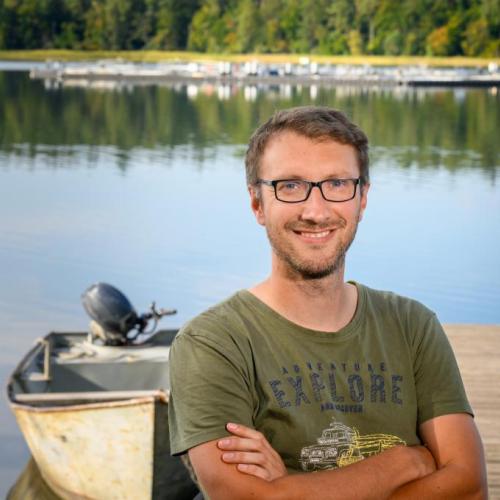CUSCO
Short profile
Duration
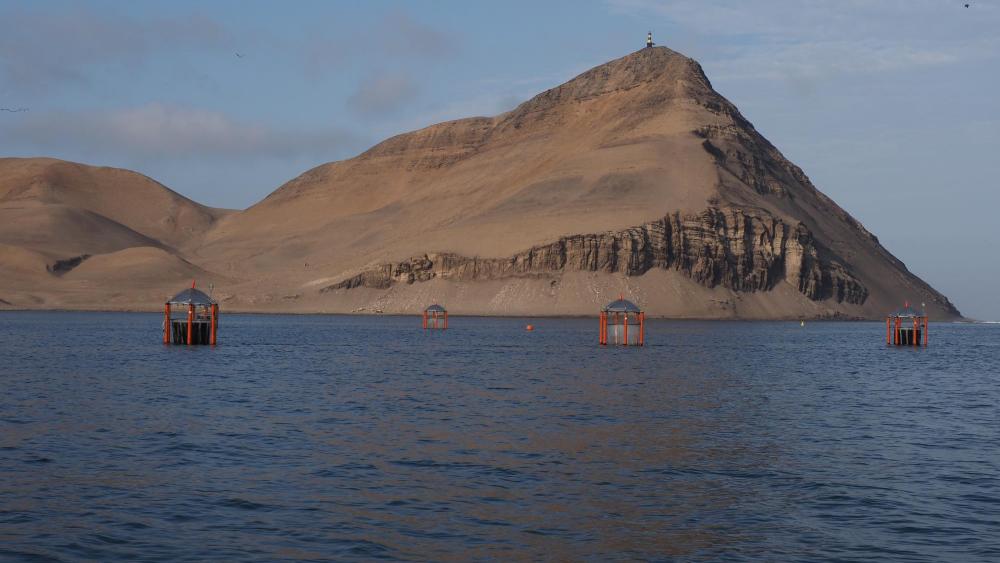
KOSMOS Mesocoms in the Humboldt upwelling system off the Peruvian coast. | Photo: J.C. Nejstgaard
Despite comparable primary production rates, the Humboldt Current upwelling system of the Peruvian coast supports a fishing yield eight times higher than other coastal upwelling areas. The joint project CUSCO is investigating how a changing climate may affect the coastal upwelling system off Peru. This is done both through field investigations (Cruises) and by a large scale mesocosm experiment using the KOSMOS facility from GEOMAR and supported by collaboration with the EU-AQUACOSM project. Of particular interest is the trophic transfer efficiency with which energy and biomass are transferred up the food web. The structure as well as transfer efficiency of the pelagic food web in the Humboldt upwelling system is analysed to identify the important trophic linkages and energy flows and how they may be influenced by changes in upwelling intensity in a changing climate. The participants of the Leibniz Institute of Freshwater Ecology and Inland Fisheries (IGB) focus on quantifying trophic role of the microzooplankton (e.g. ciliates, dinoflagellates, radiolaria) in the pelagic food web under different upwelling intensities. The KOSMOS experiment will investigate whether the transfer of primary produced biomass is supported by the "microbial loop" as an alternative or additional food chain link between primary production and mesozooplankton in the Humboldt Current and how climate changes influence the overall trophic transfer efficiency.
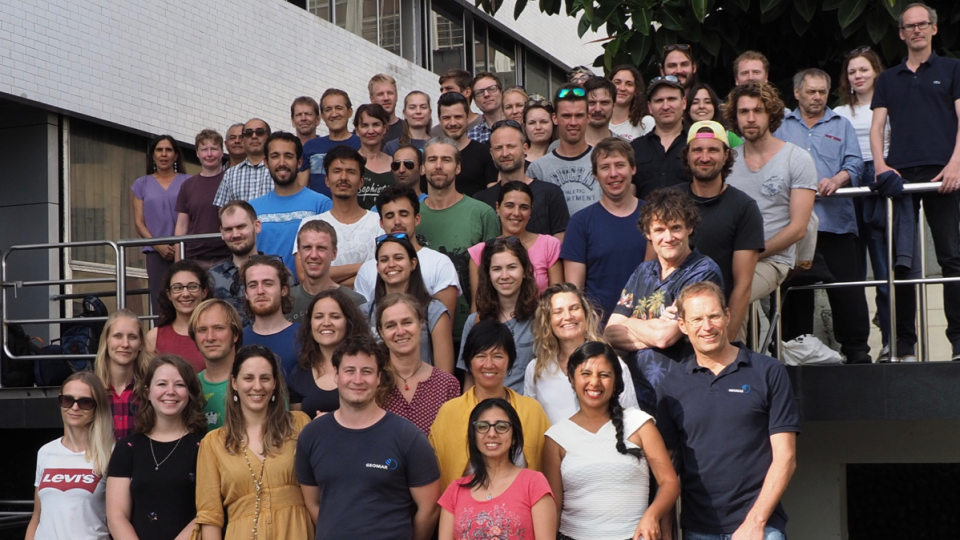
The whole CUSCO-AQUACOSM team.
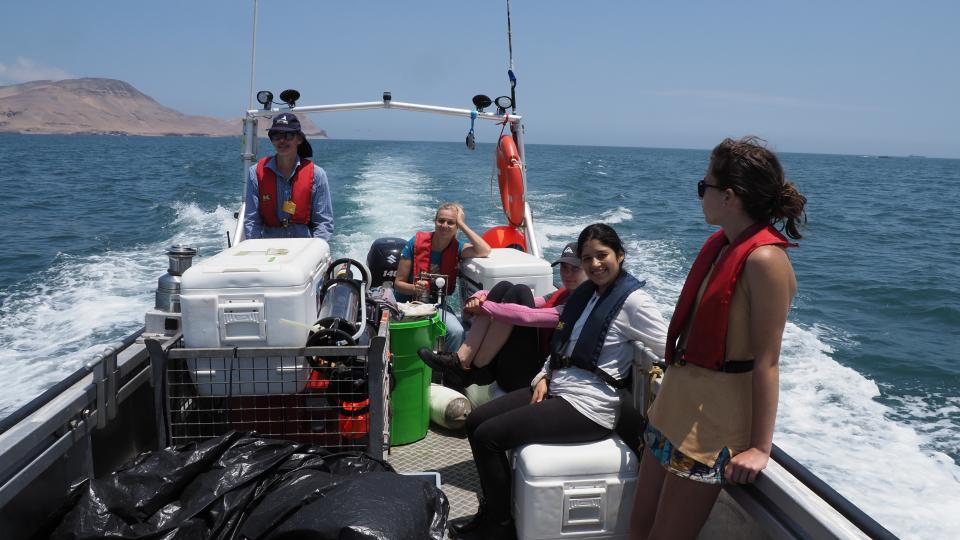
Going back after sampling the 9 mesocosms.

Sunset over La Punta beach. The Mesocosms are by the island a couple of degrees to the right of the sun.
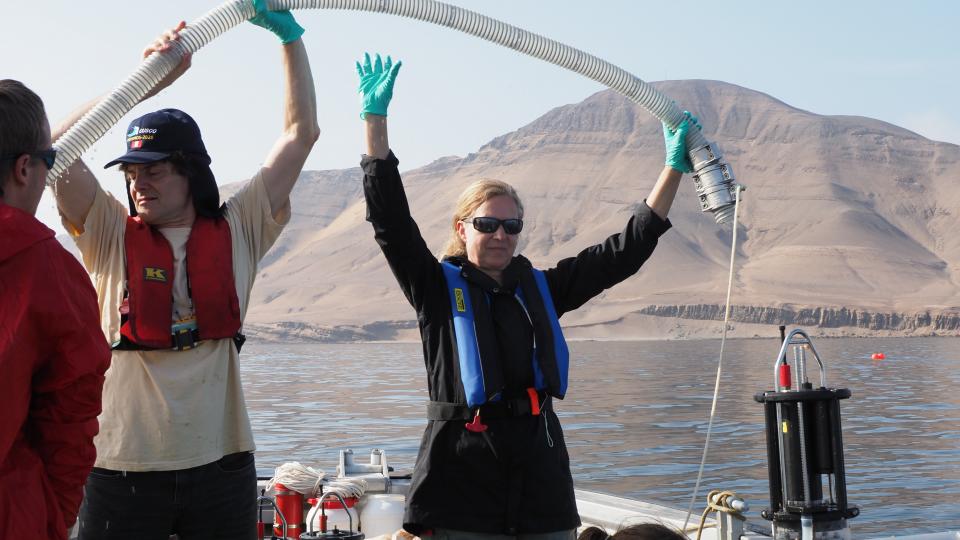
Using a tube sampler developed in the IGB-LakeLab.
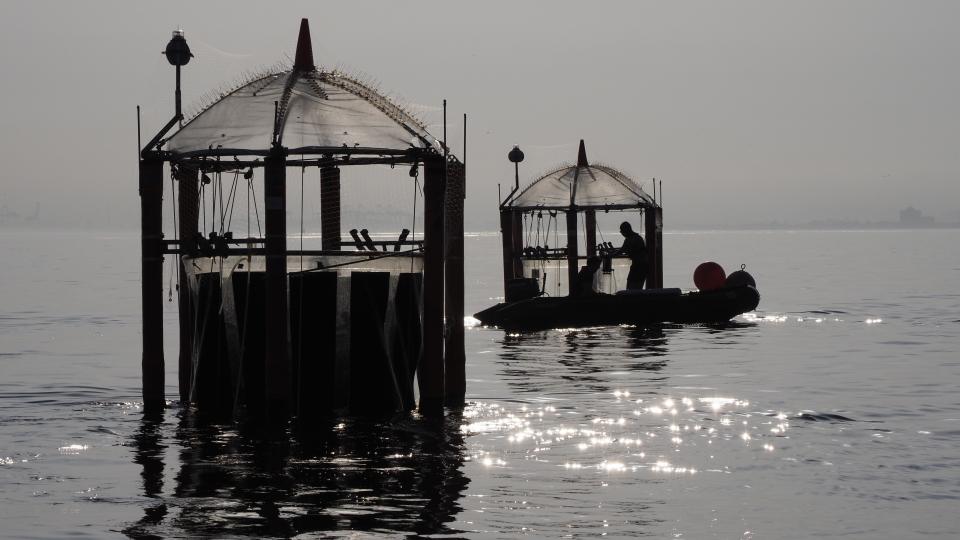
The KOSMOS mesocosms in the morning light.
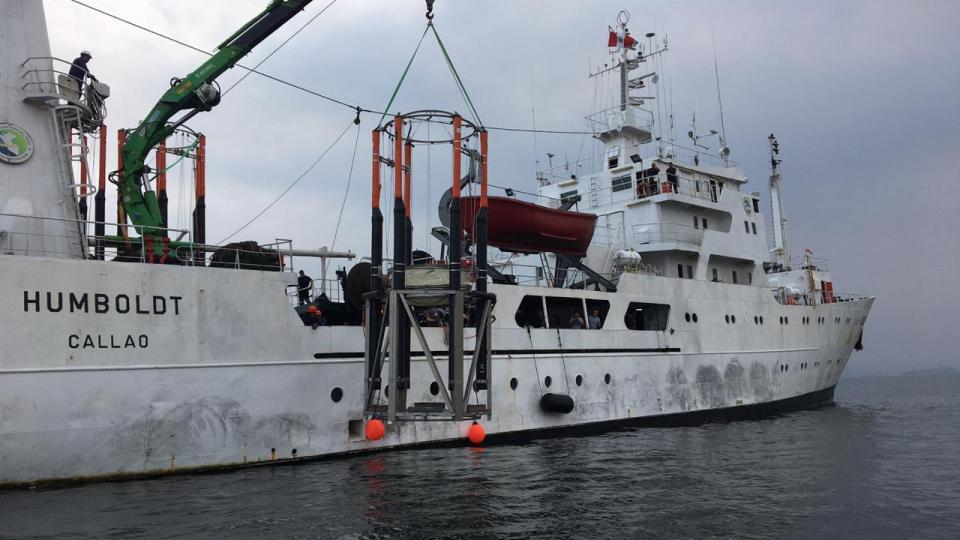
Launching the Mesocosms from the HUMBOLT of IMARPE, our local host institution.
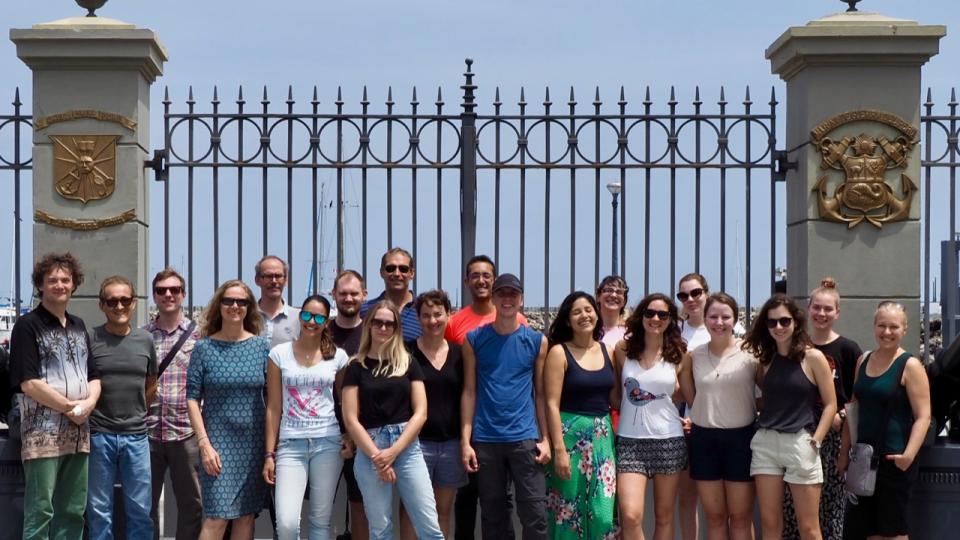
The AQUACOSM Transnational Access participants and AQUACOSM PI's.
BMBF-MARE:N Förderschwerpunkt „Bedeutung von Klimaänderungen in küstennahen Auftriebsgebieten“




